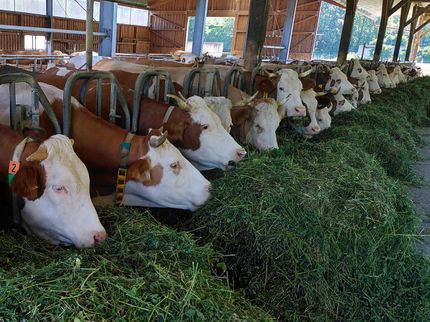Unlocking worm strategies: A pathway to innovative vaccines and therapies
The discovery opens new avenues for addressing global health challenges
A research team led by Prof. Julia Esser-von Bieren from the Center of Allergy and Environment (ZAUM) at Helmholtz Munich and the Technical University of Munich, as well as the University of Lausanne (UNIL) has uncovered a molecular strategy employed by worm parasites (helminths) to evade host immune defenses. This discovery opens new avenues for the development of innovative vaccines and therapies. Published in Science Immunology, the study offers promising solutions for addressing major infectious diseases, allergies, and asthma by leveraging the unique immune-regulatory properties of helminths.

Helminth worms
© Sina Bohnacker
Decoding Immune Evasion by Worm Parasites
Helminths are known for their remarkable ability to regulate host immune responses, a trait that has intrigued scientists for its therapeutic potential. However, the mechanism behind this phenomenon have remained elusive. In their study, the researchers could identify how a specific parasite protein, helminth glutamate dehydrogenase (heGDH), modulates host immunity to protect the parasite while limiting inflammation and tissue damage.
The study shows that heGDH acts as a molecular switch in macrophages, critical innate immune cells. Once internalized by macrophages, the protein suppresses key functions necessary to trap and kill the parasite. Instead, it activates regulatory mechanisms that temper immune responses, preventing excessive inflammation. Remarkably, heGDH achieves this through an epigenetic mechanism, suggesting lasting impacts on immune regulation. By analyzing and modifying the protein’s structure, researchers pinpointed features essential to its unique activity, distinguishing it from its mammalian counterpart.
Implications for Vaccines and Therapeutics
These insights open the door to new medical applications. Glutamate dehydrogenases (GDHs), which are found across many worm parasites, have emerged as promising targets for vaccine development. At the same time, the research team is working on creating optimized variants of the protein that can evade detection by the human immune system.
“This study represents a major step toward leveraging the sophisticated immune evasion strategies of parasites for clinical benefit,” said Sina Bohnacker, the first author of the study. Julia Esser-von Bieren adds: “Our findings could lead to transformative treatments for infectious diseases and inflammatory conditions like asthma.”
Towards a Future of Broad-Acting Biotherapeutics
The discovery opens new avenues for addressing global health challenges. Anti-parasite vaccines could mitigate the burden of helminth infections, which affect an estimated 24% of the world’s population, according to the World Health Organization (WHO). Meanwhile, therapeutic variants of heGDH could provide a novel approach to managing chronic inflammatory diseases, offering new hope for conditions like asthma, allergies, and other immune-related disorders.
Original publication
Sina Bohnacker, Fiona D. R. Henkel, Franziska Hartung, Arie Geerlof, Sandra Riemer, Ulrich F. Prodjinotho, Eya Ben Salah, ... David Voehringer, Matthias J. Feige, Clarissa Prazeres da Costa, Julia Esser-von Bieren; "A helminth enzyme subverts macrophage-mediated immunity by epigenetic targeting of prostaglandin synthesis"; Science Immunology, Volume 9
Most read news
Original publication
Sina Bohnacker, Fiona D. R. Henkel, Franziska Hartung, Arie Geerlof, Sandra Riemer, Ulrich F. Prodjinotho, Eya Ben Salah, ... David Voehringer, Matthias J. Feige, Clarissa Prazeres da Costa, Julia Esser-von Bieren; "A helminth enzyme subverts macrophage-mediated immunity by epigenetic targeting of prostaglandin synthesis"; Science Immunology, Volume 9
Topics
Organizations
Other news from the department science

Get the life science industry in your inbox
By submitting this form you agree that LUMITOS AG will send you the newsletter(s) selected above by email. Your data will not be passed on to third parties. Your data will be stored and processed in accordance with our data protection regulations. LUMITOS may contact you by email for the purpose of advertising or market and opinion surveys. You can revoke your consent at any time without giving reasons to LUMITOS AG, Ernst-Augustin-Str. 2, 12489 Berlin, Germany or by e-mail at revoke@lumitos.com with effect for the future. In addition, each email contains a link to unsubscribe from the corresponding newsletter.






















































